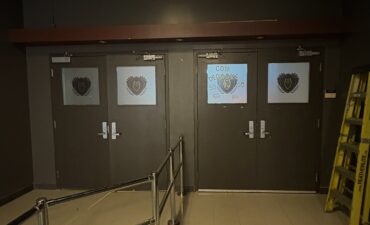The University of Regina halls were quiet election Monday as many students visited the polls to vote. The vacant classrooms differed greatly from the 2019 election, when students lined out the door to vote on campus.
For the 2021 election, many students felt polls were difficult to get to. Difficulty accessing polls can turn away young voters.
“I think that it is a very complicated process, and it would be very difficult to find locations,” said student Anushka Patel. “Some locations are very far.”
Elections Canada’s ‘Vote on Campus’ program was previously a great success with 110,000 ballots cast in the 2019 federal election.
Without the Vote on Campus program, potential users fear there could be a decrease in voter turnout among post-secondary and college students.
Elections Canada tweeted their reasoning for cancelling the on-campus polling station on Aug. 25. They identified that pandemic safety and the current minority government are cause for no polling stations.
Many students are concerned about no polls on campus because it may lead to voter abstinence. Millennial and Gen Z age groups currently make up 40 per cent of the population in Canada, making them the largest age group in the nation, according to a recent article in The Globe and Mail.
President of the University of Regina’s Politics and International Studies Students Association (UR POLIS), Bronwyn Heerspink, explains why having campus polling stations is so important for students.
“It is very frustrating to see Elections Canada not holding their campus vote program in this election,” said Heerspink. “Mainly because access is such an issue for young people …
“Time is so precious for students, with class work, all these other things, and there are all these other barriers to participation. A lot of young people don’t have means of transportation to get them to the polls in a timely fashion, or again, don’t have time.”
Many students have to coordinate their schedule to be able to get transportation to the nearest polling stations. It can take up more time for students depending on how long line-ups are at the polls.
U of R student Finn Schaffer explains the convenience of on campus polls.
“I think that’s kind of lame,” said Schaffer. “I think that we should have as much access to be able to vote as possible.
“All of the residents here, or at least some of them, need to use public transportation or drive to polls and I don’t think that’s necessary when we could just have a polling station.”
While students struggle to find time to get to the polls, some are reminiscent of how on-campus access to polls in the 2019 election made things more convenient.
“I probably would have [voted] already if there were polls here,” said student Elizabeth Beke. “I would have got it done on my lunch break.”
Sixty-eight per cent of Canadians age 18-24 voted in the 2019 federal election, according to Statistics Canada. Voter turnout in the same age demographic was previously at 55 per cent for the 2015 federal election.















